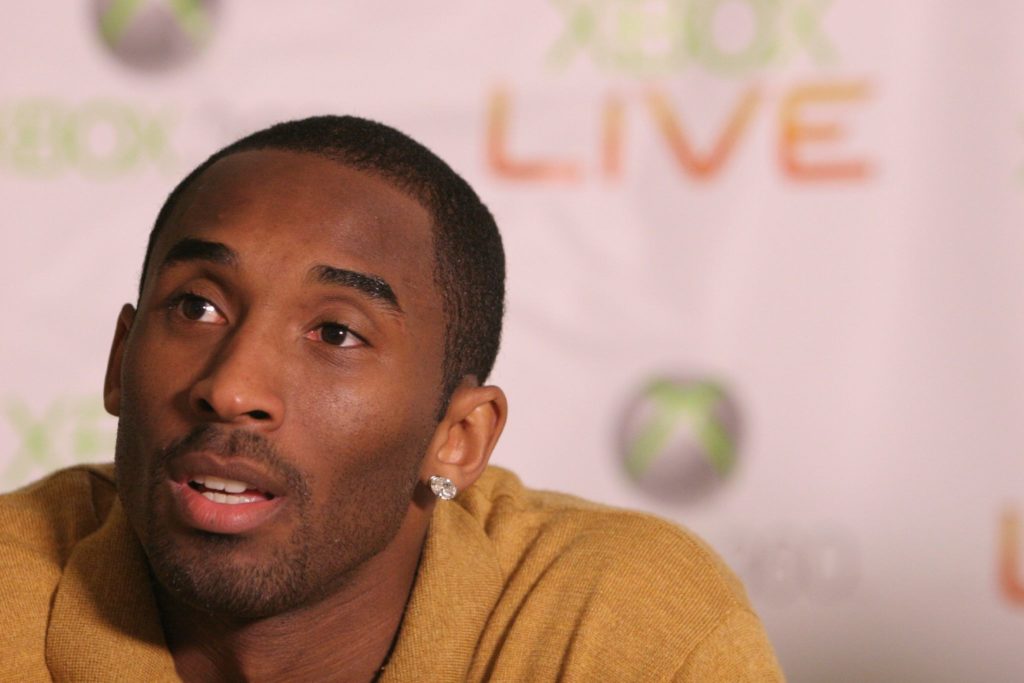contact me
Hi! I'm Lindsay Ferrier. You might remember me from a blog called Suburban Turmoil. Well, a lot has changed since I started that blog in 2005. My kids grew up, I got a divorce, and I finally left the suburbs for the heart of Nashville, where I feel like I truly belong. I have no idea what the future will hold and you know what? I'm okay with that. Thrilled, actually. It was time for something totally different.
It’s Okay to Be Sad About Kobe Bryant’s Death
January 27, 2020
You can’t look at TV or social media today without seeing the name Kobe Bryant. The death of Kobe, his 13-year-old daughter, and seven others in a helicopter crash shocked the nation and brought many to tears. Yesterday, most of the posts and stories I read portrayed Kobe as a sort of angel on earth — a family man, a devoted father, a committed volunteer, a sports legend. Today, predictably, critics are emerging to remind the nation’s mourners that Kobe was far from perfect. Thus, the back-and-forth begins… And it’s totally and completely unnecessary.
The emotions so many of us are feeling right now about the deaths of Kobe and his daughter are complicated. Most of us didn’t know Kobe Bryant or his family personally. Many of us didn’t keep up with the LA Lakers when he was a player — yet we react with the same shock and horror we’d have if the tragedy involved a neighbor or extended family member. This reaction then triggers responses from those who feel the need to remind everyone that Kobe had flaws, and that his death is no more tragic than anyone else’s untimely demise.
But it’s clear to me that so many of the public responses we’re seeing are perhaps less about Kobe Bryant and more about… all of us. Kobe’s death proves yet again that death is an inescapable truth, no matter how rich or how beautiful or how accomplished we are. Death doesn’t discriminate, to quote Hamilton. Death is scary, both for the ones leaving and for those left behind. Death is unknown. It’s incurable. We comfort ourselves with hopes of dying in our sleep at the ripe old age of 102, and when that doesn’t happen, we freak out a little — especially when it happens to those who seemed so alive and visible and, frankly, immune.
I don’t have any illusions that Kobe Bryant was perfect — He made huge mistakes. I don’t think his death was more tragic than that of any beloved father or husband who’s died before his time. But I felt real sorrow about yesterday’s tragedy, because it made me think about the fleeting nature of life, the unfairness of death, the fear of something happening to one of my children, and the deep grief sure to follow the family and friends of those lost for years to come.
There’s no need to argue with anyone who’s mourning the loss of a man and child they’ve never met. No need to remind them of Kobe’s transgressions or the fact that there were others who died on the helicopter. In the end we’re all on this planet together, struggling to come to terms with some devastating truths. Showing compassion for others, even when we didn’t actually know them, even when they’ve made huge and horrible mistakes, can never be a bad thing or a weakness. It can only serve to bind us together at a time when the world really needs it.
Image via Gamerscore Blog/Flickr Creative Commons
Leave a Reply Cancel reply
This site uses Akismet to reduce spam. Learn how your comment data is processed.

I think the tension has come in because it’s hard for sexual assault survivors to feel heard or seen in the face of this tragedy – a tragedy that has triggered many of the emotions you so eloquently point out that people feel about Kobe’s death. It’s completely ok to feel sorrow, grief, sadness, and fear for one’s own mortality as people process the death of this basketball legend; however, what helps survivors to feel heard is to acknowledge, in the same space, the work that has been required for them to overcome and incorporate those same feelings as they claim a new normal in their lives. For many rape survivors, even those committed by an acquaintance, they are afraid they may be killed. For some, it takes years to process this. Kobe’s admitted past is what is triggering.
Without taking anything away from the man he may have become or the untimeliness of his death, to allow space at the same time for both those who grieve Kobe and those who grieve their own experiences is a great way to say to survivors that #MeToo is more than just words. It’s a way to say to them that their pain is not forgotten and that their journey is honored too.